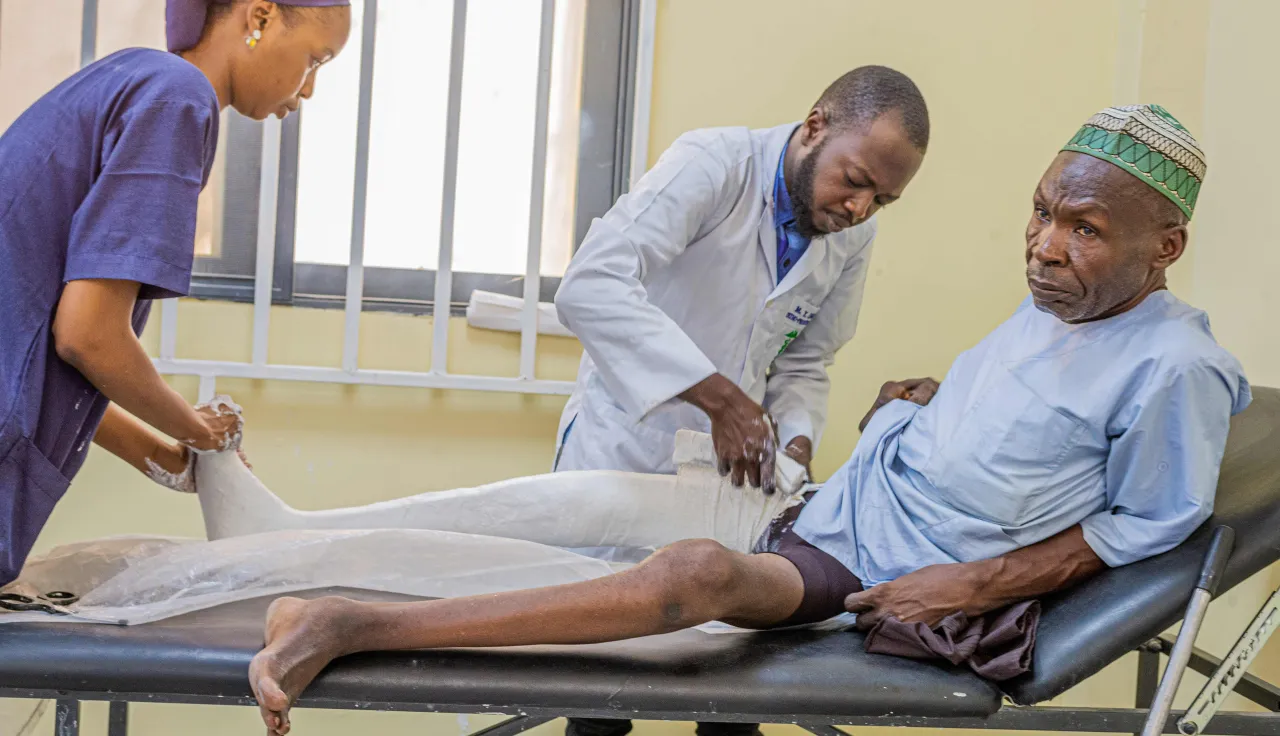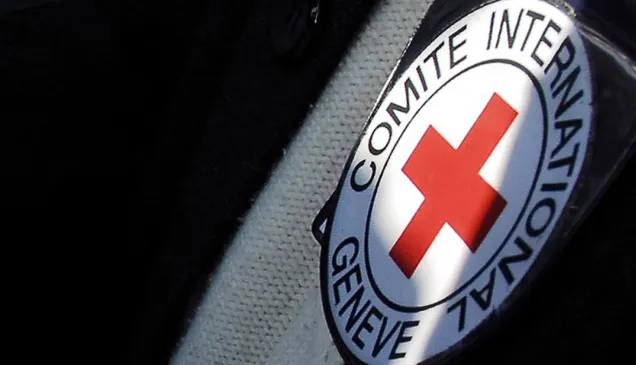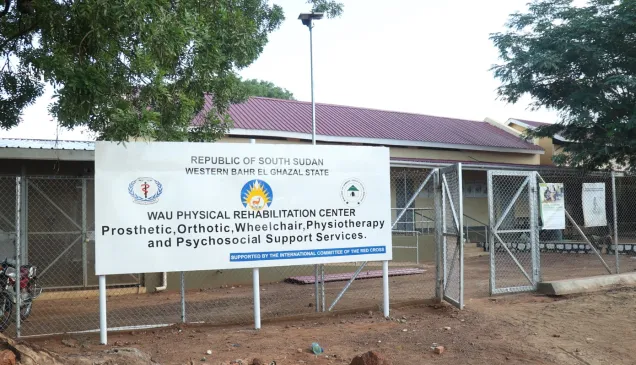An estimated 29 million people – about 14 per 100 of the population - live with a disability in Nigeria and physical rehabilitation services are not available for many of them. In the North-East of the country, conflict and violence have left many with no access to essential health care services, forcing people to travel 600 miles to reach a facility with adequate care.
"It is an important step to have such facilities up and running in Nigeria and elsewhere. It is an opportunity for millions to have a better life," said Daniel Odhiambo, ICRC team leader for the physical rehabilitation center in Maiduguri. "This is the first step of a long-term effort so people can benefit from essential services in the years to come."
The three centers in Nigeria, the DRC and Mali, were funded through a unique financing mechanism called the Humanitarian Impact Bond (HIB). The initial funding was provided by social investors, such as Bank Lombard Odier and New Re, and ultimately reimbursed through a payment-by-result agreements by outcome funders, including the governments of Switzerland, Belgium, Italy, the United Kingdom and "La Caixa" Foundation.
COVID-19, military coups and peaks of violence made the implementation of the project complex but despite those challenges, the centers are 9% more efficient than the benchmark centre in terms of time management, staff members skills, management of stock and resources. These criteria and essential elements such as the quality of care and the satisfaction of the patients were the key factors that helped determine the level of success of the HIB.
The HIB has proven to be a very powerful tool to diversify our funding for a large-scale multi-year project. The collaboration and trust of our partners has been key, especially at a time when global needs are growing and humanitarian funding is plateauing. Today, we're glad to say that the project has met its objectives and over 3,000 people have already had access to life-changing physical rehabilitation services
ICRC president Peter Maurer.
The HIB has been a successful attempt for private and public actors to combine resources and expertise, paving the way for other innovative projects to bring additional resources to address the growing humanitarian finance gap. Investors who trusted the ICRC with this project will receive 100% of their investment back, and even if there will be no financial gain, the human and humanitarian impact is incommensurable.
"Financial innovation and a deep commitment to humanitarian causes are core to Lombard Odier's DNA. We are proud to have helped the ICRC to construct a truly innovative financing mechanism and bring it to market. It offers the long-term financing needed to innovate humanitarian services provision for people in conflict affected-countries, raising both health worker productivity and the standard of care," said Dr Maximilian Martin, Global Head of Philanthropy.
The ICRC seeks to generate new ways of working by enabling collaboration and partnerships across the humanitarian, development, and private sectors, and aims to mobilize a growing part of its income from innovative finance by 2030. Donors and investors will play a key role to help improve the living conditions of millions of people.
"The Foreign, Commonwealth and Development Office (FCDO) has supported the ICRC across a wide range of humanitarian activities for decades. We are proud to have been part of this groundbreaking initiative that has brought public and private actors together to find new ways to drive efficiency in humanitarian operations and maximize impact for people with disabilities" said Nick Dyer, Humanitarian and Development Director-General of FCDO.
The ICRC already launched two other projects using new financing mechanisms during the first quarter of 2022:
- The Climate and Environment Transition Fund is a project designed to support environment and climate initiatives throughout the ICRC's global operations.
- The Goma West Resilient Water Project that aims to provide clean and safe water access to the growing population of Goma in DRC, and a financially sustainable operating model over the medium to longer-term.
Finally, building on the HIB, the ICRC is working on a series of new financing models to further support people affected by motor physical disabilities in fragile settings.
For further information, please contact:
Florian Seriex, ICRC Geneva, tel: +41 79 574 06 36
Chris Hanger, ICRC Geneva, tel: +41 77 260 26 79
or visit our website: www.icrc.org
To preview and download the latest ICRC video footage in broadcast quality, go to
www.icrcvideonewsroom.org
To find out what the ICRC is doing to put an end to attacks on health workers and patients, go to
www.healthcareindanger.org
Follow the ICRC on Facebook and Twitter



